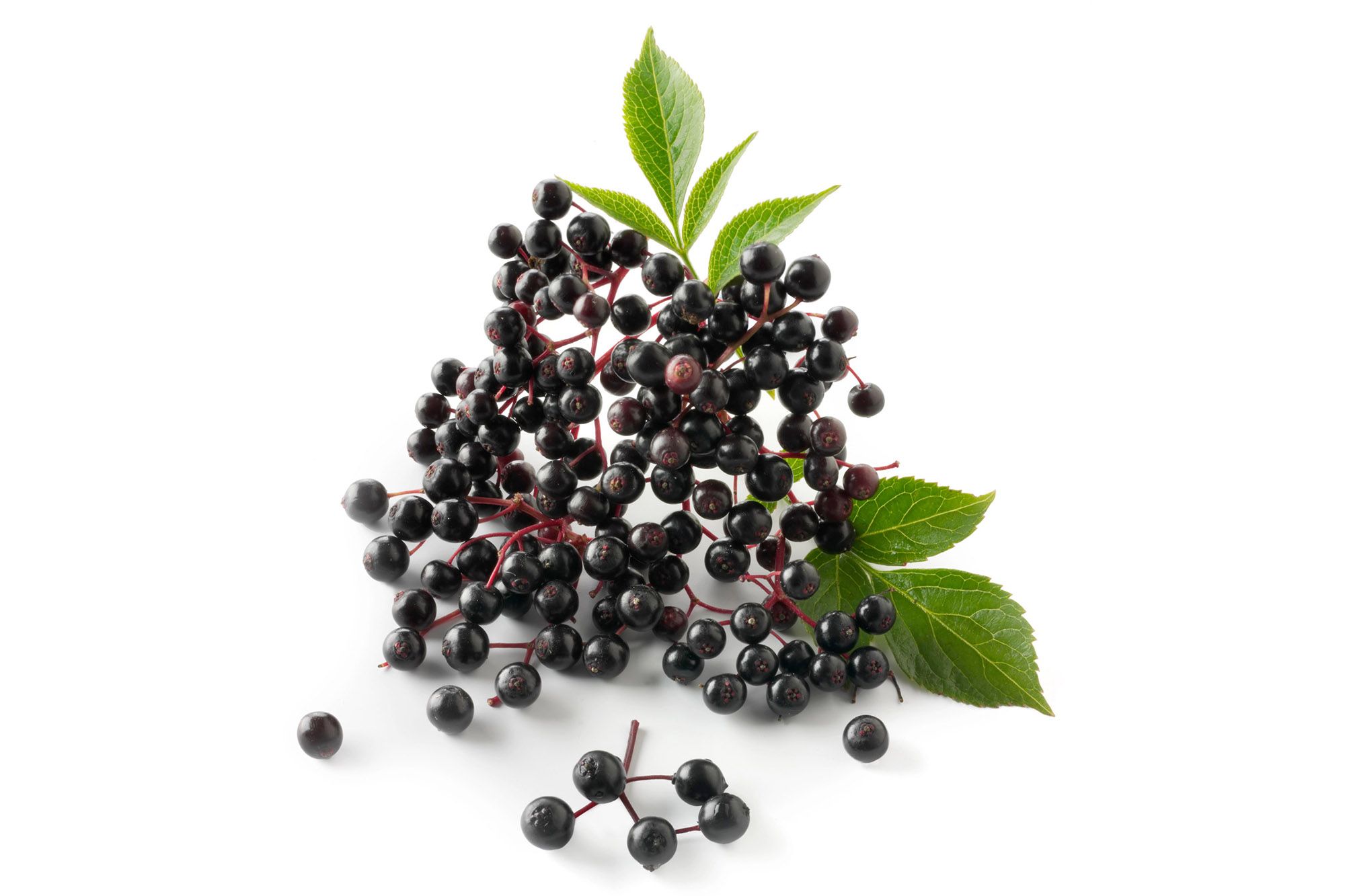 There are several types of elders, however, the most common used for medicinal remedies are the black elderberries also known as Sambucus nigra. They are dark violet berries and they grow in a cluster. Elderberries are only edible when fully ripe and cooked1. The stems and branches of the fruit are not edible. Elderberries have a long history in the making of wines, syrups, lozenges, teas, juice, and as a coloring agent.
There are several types of elders, however, the most common used for medicinal remedies are the black elderberries also known as Sambucus nigra. They are dark violet berries and they grow in a cluster. Elderberries are only edible when fully ripe and cooked1. The stems and branches of the fruit are not edible. Elderberries have a long history in the making of wines, syrups, lozenges, teas, juice, and as a coloring agent.
Medicinal Uses
Long before antibiotics existed, elderberries were used as one of the main ingredients in medicinal remedies by medical professionals2. New research is focusing on using elderberries to treat and prevent influenza virus A, B (flu), colds, herpes, diabetes, cardiovascular and even cancer3.
Elderberries used to combat the Influenza virus
Elderberries have a quick response in reducing flu symptoms and provide a better outcome when compared with common flu medications4. Studies have shown the problem with medication drugs is that resistance can develop quickly. The influenza virus is able to change its characteristics by antigenic mutation, thus making it difficult for common medication to work effectively4,2. However, elderberry syrup has demonstrated to be more effective than the standard flu medication by protecting the cells from the virus and strengthening the immune system3. In addition, elderberry extract can also be taken at the onset of flu symptoms for a faster recovery.
One study compared two groups of people, one group took a standardized elderberry extract (Sambucol) for three days at the onset of flu symptoms and the other group was given a placebo syrup. The elderberry group significantly reduced their symptoms, including fever, within 2 days. While the placebo syrup group did not show similar improvements until day 6.
Overall the elderberry group had a 90% of full recovery within 2-3 days and the placebo group recovered within 6 days1.
Health Benefits
Elderberries are considered to be a superfood due to their high antioxidant content, vitamins, and minerals. One of the main bioactive compounds are polyphenols including its subgroups: anthocyanin, and quercetin3. These compounds are known to act as antioxidants. Anthocyanin’s are known to be antibacterial, anti-inflammatory and to protect cells from oxidative stress caused by free radicals and UV irradiation5. Quercetin has also been used to treat asthma and allergies due to its ability to inhibit the production of chemicals that cause bronchial muscle to spasm and instead relaxes the muscles6. Other nutrients found in elderberries are the following vitamins: A, C, E, B1, B2, B6, and B9. The following minerals: potassium, magnesium, calcium, phosphorus and some trace minerals: zinc, iron, manganese, and copper.
Warnings
Unripe or raw fruit can cause toxic effects such as diarrhea, nausea, and vomiting. In addition, some studies have mentioned a small percentage of people may be allergic to the extract of elder pollen, flowers and berry1.
Pregnant or lactating women should not consume elderberries due to lack of studies and the potential of toxicity1.
Recommended dosage for Elderberry syrup:
For daily maintenance:
Adults: 1 teaspoon (tsp.) daily
Children 4 and up: 1 tsp. daily
Intensive use when sick:
Adults: 1-2 Tablespoons daily
Children 4 and up: 1 Tablespoon daily
Download Elderberry Syrup Brochure
Refrigerate and keep for 6 months.
References:
- The ABC Clinical Guide to Elder Berry.; 2004. www.herbalgram.org.
- Krawitz C, Mraheil MA, Stein M, et al. Inhibitory activity of a standardized elderberry liquid extract against clinically-relevant human respiratory bacterial pathogens and influenza A and B viruses. BMC Complement Altern Med. 2011;11(1):16. doi:10.1186/1472-6882-11-16
- Walkowiak-tomczak D, Staniek H. The Content of Selected Minerals, Bioactive Compounds , and the Antioxidant Properties of the Flowers and Fruit of Selected Cultivars and Wildly Growing Plants of Sambucus nigra L. Molecules. 2020;25(4):1-11.
- Kinoshita E, Hayashi K, Katayama H, Hayashi T, Obata A. Anti-influenza virus effects of elderberry juice and its fractions. Biosci Biotechnol Biochem. 2012;76(9):1633-1638. doi:10.1271/bbb.120112
- Strugała P, Loi S, Bazanów B, et al. A Comprehensive study on the biological activity of elderberry extract and cyanidin 3-o-glucoside and their interactions with membranes and human serum albumin. Molecules. 2018;23(10). doi:10.3390/molecules23102566
- Murray M, Pizzorno J, Pizzorno L. The Encyclopedia of Healing Foods. New York: Atria Books; 2005.